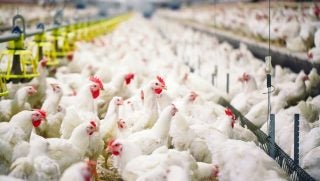Things are a little different on farms and ranches: Youth often work alongside their families or secure paid farming jobs at a younger age. But, not everyone agrees that this is a good idea.
On the heels of crackdowns centered around child labor issues in slaughter facilities, Reps. Raúl M. Grijalva (D-AZ) and Raul Ruiz, M.D. (D-CA), introduced the Children’s Act for Responsible Employment and Farm Safety Act of 2023, which would raise national labor standards for farmworker children to the same level set for children in all other occupations.
Agriculture is the only industry with labor laws that allow children as young as 12 to work with virtually no restrictions on the number of hours they spend in the fields outside of school. And, it’s a dangerous industry. According to the National Children’s Center for Rural and Agricultural Health and Safety, every day, 33 children are injured while working on U.S. farms.
According to the latest U.S. Department of Agriculture’s 2017 Census of Agriculture, family farms make up 96 percent of all U.S. farms. In rural America, many young people’s first job is on a farm or ranch. Anyone’s who has worked on a farm or ranch knows that part of the job is early mornings, sometimes late nights, and long hours when it comes to working livestock or handling crops.
Currently, there are at least 15 states that allow children of at least 12 to work on farms outside of school hours. Illinois allows 10-year-olds to work on farms and 12-year-olds to work within school hours.
Federally, 12-year-olds are required to have written parental consent. Restrictions by age vary by state, but most states require child farm workers to be at least 16 to miss school for farm work or to have a labor certificate.
The CARE Act aims to change all of that, bringing age and work hour standards for children in agriculture up to the standards for children working in all other industries.
Among its other provisions, the bill would also establish a minimum penalty for child labor violations, increase the maximum civil monetary penalties and maximum criminal penalties for child labor violations, and provide children with greater protection against pesticide exposure.
If the bill passes, children ages 12 to 13 would no longer be allowed to work outside of school hours with parental consent. In addition, the bill would prohibit children ages 14 to 15 from working before 7 a.m. or after 7 p.m. for more than three hours on a school day, or more than 18 hours in a week. Youth ages 16 and 17 would be prohibited from performing any hazardous jobs until they turn 18.
»Related: Perspective: The bright side of lowering the 60-hour-a-week threshold


